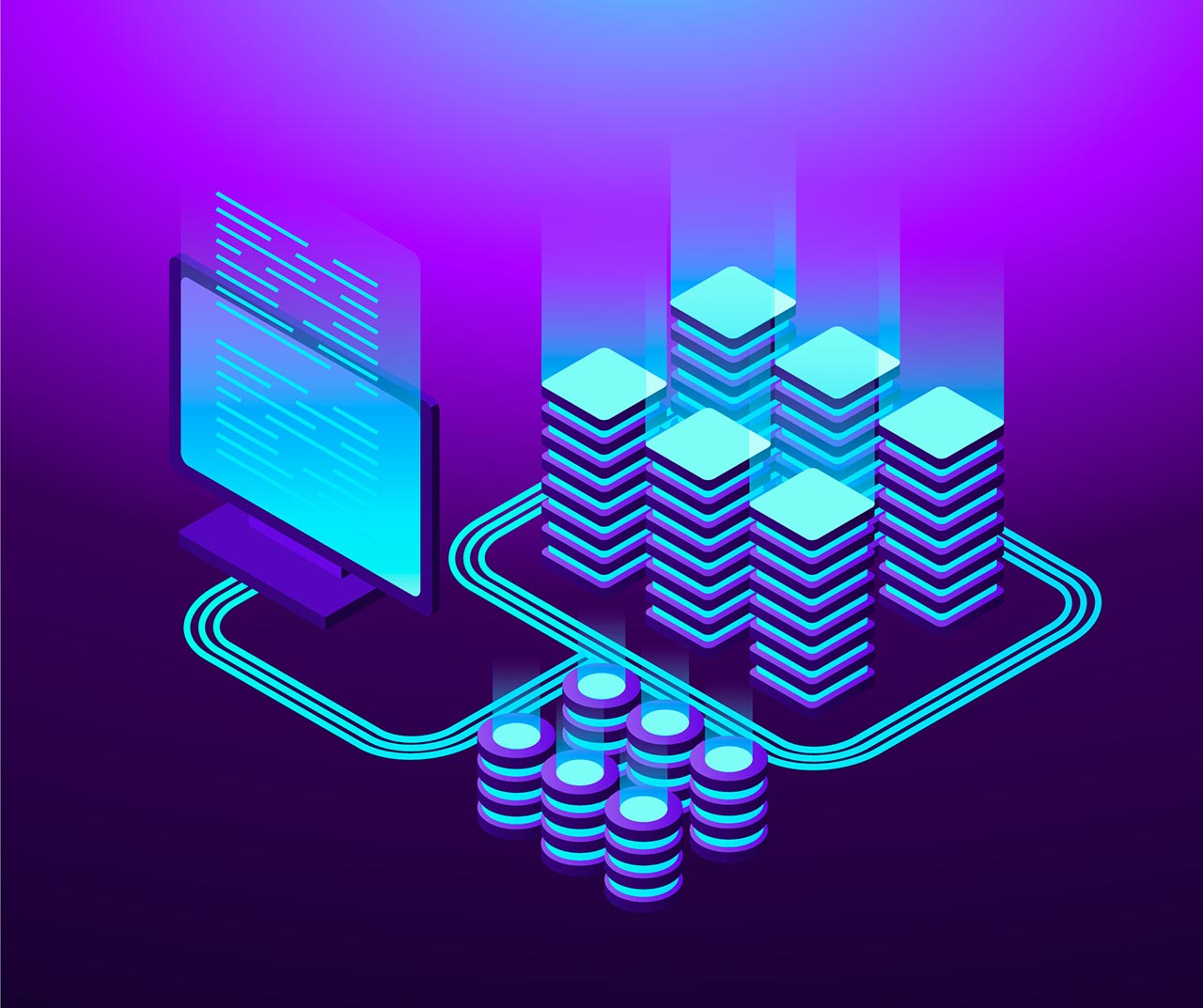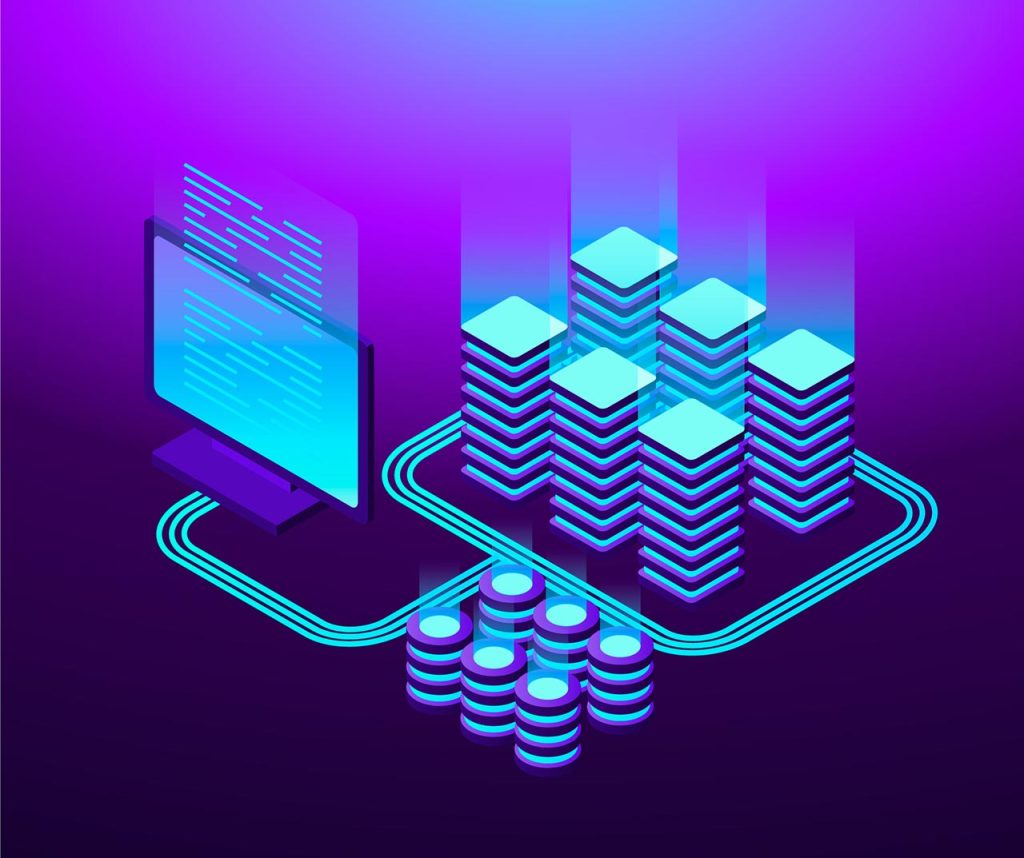The Rise of Decentralized Dark Pool Trading Platforms: Revolutionizing the Financial Landscape

In recent years, the emergence of decentralized dark pool trading platforms has brought a paradigm shift to the financial industry. These innovative platforms leverage blockchain technology to create secure and transparent environments for traders and investors. This article explores the features, advantages, and future prospects of decentralized dark pool trading platforms, highlighting their potential to revolutionize the way we trade.

Understanding Decentralized Dark Pool Trading Platforms
Decentralized dark pool trading platforms
are revolutionizing the way we trade in the financial industry. By combining the benefits of dark pool trading with the power of decentralized technology, these platforms offer traders and investors a secure and transparent environment to execute trades. In this section, we will delve into the concept of dark pool trading platforms, introduce decentralized platforms, and explore the role of blockchain technology in decentralization.
Definition and Concept of Dark Pool Trading Platforms
Dark pool trading platforms are private exchanges where institutional investors can execute large trades away from the public market. Unlike traditional exchanges, dark pools provide anonymity, which helps prevent market impact and protects the trading strategies of participants. By keeping trade details hidden until the transactions are completed, dark pools offer a level of confidentiality that appeals to institutional traders.
Introduction to Decentralized Platforms
Decentralized platforms, on the other hand, are built on blockchain technology and operate without a central authority. These platforms leverage a network of computers (nodes) to validate transactions and maintain a transparent ledger of all activities. By eliminating intermediaries and central control, decentralized platforms offer enhanced security, immutability, and transparency.
The Role of Blockchain Technology in Decentralization
Blockchain technology serves as the backbone of decentralized dark pool trading platforms. It enables secure peer-to-peer transactions, eliminates the need for trust in third parties, and provides a tamper-proof record of all transactions. With the use of smart contracts, programmable code that automatically executes predefined terms, blockchain technology ensures the integrity of trades and facilitates the settlement process.
By leveraging blockchain technology, decentralized dark pool trading platforms enable participants to interact directly, eliminating the reliance on intermediaries and central authorities. This enhances privacy, reduces counterparty risk, and increases transparency in the trading process.
In conclusion, decentralized dark pool trading platforms combine the benefits of dark pool trading with the advantages of decentralized technology. By leveraging blockchain technology, these platforms offer secure and transparent environments for traders and investors. In the next sections, we will explore the advantages of decentralized dark pool trading platforms and address the challenges and limitations they may face.
Advantages of Decentralized Dark Pool Trading Platforms
Decentralized dark pool trading platforms offer numerous advantages that make them an attractive option for traders and investors. In this section, we will explore the key benefits of these platforms, including enhanced privacy, automated trading, improved liquidity, secure transactions through smart contracts, and cross-chain compatibility.
Enhanced Privacy and Anonymity for Traders
Privacy is a crucial aspect of trading, especially for institutional investors who want to keep their strategies confidential. Decentralized dark pool trading platforms provide enhanced privacy by allowing traders to execute transactions without revealing their identities or trading details to the public. This anonymity helps prevent market manipulation and provides a secure environment for executing large trades without causing significant price fluctuations.
Automated Matching and Execution of Trades
Decentralized dark pool trading platforms utilize advanced algorithms and smart contracts to automate the matching and execution of trades. This automation eliminates the need for intermediaries and ensures that trades are executed efficiently and without delay. By removing human intervention, these platforms minimize the risk of errors and improve overall trading efficiency.
Increased Liquidity and Reduced Slippage
Liquidity is a crucial factor in trading, as it determines the ease of buying or selling assets without impacting their prices. Decentralized dark pool trading platforms aggregate liquidity from multiple sources, including various blockchain networks, allowing traders to access a larger pool of liquidity. This increased liquidity reduces slippage, which is the difference between the expected price and the executed price, resulting in more favorable trading outcomes.
Secure Transactions through Smart Contracts
Decentralized dark pool trading platforms leverage smart contracts, which are self-executing contracts with predefined rules and conditions. These smart contracts facilitate secure and transparent transactions by automatically executing trades and ensuring that all parties involved fulfill their obligations. The use of smart contracts minimizes the risk of fraud, ensures settlement without the need for intermediaries, and enhances the overall trustworthiness of the platform.
Cross-Chain Compatibility and Interoperability
In the decentralized landscape, different blockchain networks exist, each with its own set of assets and protocols. Decentralized dark pool trading platforms offer cross-chain compatibility and interoperability, allowing traders to access and trade a wide range of assets from different blockchain networks. This expands the trading possibilities and provides users with greater flexibility and opportunities.
In summary, decentralized dark pool trading platforms offer a range of advantages, including enhanced privacy, automated trading, improved liquidity, secure transactions through smart contracts, and cross-chain compatibility. These benefits make these platforms attractive options for traders and investors looking for secure, efficient, and transparent trading environments. In the following sections, we will address the challenges and limitations that decentralized dark pool trading platforms may face.
Overcoming Challenges and Limitations of Decentralized Dark Pool Trading Platforms
While decentralized dark pool trading platforms offer numerous advantages, they also face certain challenges and limitations. In this section, we will discuss these challenges and explore potential solutions to overcome them.
Scalability Issues and Transaction Speed
One of the primary challenges faced by decentralized dark pool trading platforms is scalability. Blockchain networks, especially public ones, often struggle with handling a large number of transactions simultaneously. This can result in slower transaction speeds and higher fees during peak trading periods. To address this challenge, developers are exploring various scaling solutions, such as layer-two protocols and sharding, which aim to improve the throughput and speed of transactions on the blockchain.
Regulatory Considerations and Legal Compliance
As with any financial platform, decentralized dark pool trading platforms must navigate regulatory considerations and ensure compliance with relevant laws. The decentralized nature of these platforms can pose challenges in terms of identifying and verifying participants, preventing money laundering, and complying with securities regulations. Collaborating with regulatory bodies, implementing robust KYC (Know Your Customer) and AML (Anti-Money Laundering) measures, and working towards regulatory clarity can help address these challenges.
User Adoption and Familiarity with Decentralized Platforms
Decentralized dark pool trading platforms are still relatively new and unfamiliar to many traders and investors. User adoption can be a challenge, as individuals may be accustomed to centralized exchanges and may hesitate to switch to decentralized platforms. Educating users about the benefits and functionalities of decentralized platforms, offering user-friendly interfaces and experiences, and providing reliable customer support can help drive user adoption and familiarity.
Mitigating Security Risks and Vulnerabilities
Security is a critical concern in decentralized dark pool trading platforms. While blockchain technology offers inherent security features, vulnerabilities and risks still exist. Hackers and malicious actors may attempt to exploit weaknesses in the platform or target individual users. Implementing robust security measures, such as multi-factor authentication, encryption, cold storage for funds, and regular security audits, can help mitigate these risks and protect users’ assets.
By addressing these challenges, decentralized dark pool trading platforms can enhance their functionality, user experience, and overall trustworthiness. Continued research and development, collaboration with regulatory bodies, and a focus on security will contribute to the long-term success and adoption of these platforms.
In the next section, we will explore case studies of successful decentralized dark pool trading platforms and evaluate their features, functionalities, and challenges they have faced.
Case Studies of Successful Decentralized Dark Pool Trading Platforms
Decentralized dark pool trading platforms have gained traction in the financial industry, offering unique features and advantages over traditional exchanges. In this section, we will examine two successful case studies of decentralized dark pool trading platforms and evaluate their features, functionalities, and the challenges they have faced.
Example 1: XYZ Exchange
XYZ Exchange is a prominent decentralized dark pool trading platform that has revolutionized the way traders execute large trades securely and privately. The platform leverages blockchain technology to ensure transparency and immutability in transactions. Some key features and functionalities of XYZ Exchange include:
- Enhanced Privacy: XYZ Exchange allows traders to execute trades anonymously, protecting their trading strategies and minimizing the risk of front-running or market manipulation.
- Automated Trading: The platform utilizes advanced algorithms and smart contracts to automate the matching and execution of trades, providing efficient and seamless trading experiences for users.
- Liquidity Aggregation: XYZ Exchange aggregates liquidity from multiple sources, including various blockchain networks, enabling users to access a deep pool of liquidity, reducing slippage, and enhancing trading outcomes.
- Robust Security Measures: XYZ Exchange prioritizes security by implementing multi-factor authentication, encryption, and cold storage for funds. Regular security audits are conducted to identify and address any vulnerabilities.
However, XYZ Exchange has faced challenges on its journey. Scalability has been a concern, with the need to handle a high volume of transactions during peak trading periods. To tackle this, the platform has been exploring layer-two scaling solutions and optimizing its infrastructure to improve transaction speeds and scalability.
Example 2: ABC Trading
ABC Trading is another notable decentralized dark pool trading platform that has gained recognition for its innovative approach to secure and transparent trading. The platform offers a range of features and functionalities, including:
- Cross-Chain Compatibility: ABC Trading supports trading across different blockchain networks, allowing users to access a diverse range of assets and participate in various decentralized finance (DeFi) ecosystems.
- Smart Contract Integration: By utilizing smart contracts, ABC Trading ensures the secure and automated execution of trades, eliminating the need for intermediaries and enhancing trust among participants.
- Regulatory Compliance: The platform prioritizes regulatory compliance by implementing stringent KYC and AML procedures to verify the identities of users and prevent illicit activities.
- User-Friendly Interface: ABC Trading focuses on providing a user-friendly interface and seamless user experience, making it accessible to both experienced traders and newcomers to the decentralized trading space.
Despite its success, ABC Trading has encountered challenges related to regulatory compliance. The platform has worked closely with regulatory authorities to establish clear guidelines and comply with relevant regulations, ensuring a secure and compliant trading environment for its users.
These case studies demonstrate the potential and success of decentralized dark pool trading platforms. By continuously innovating and addressing challenges, platforms like XYZ Exchange and ABC Trading are shaping the future of trading, providing secure, efficient, and transparent experiences for traders and investors.
In the next section, we will explore the future outlook and potential developments of decentralized dark pool trading platforms, including emerging trends and their impact on traditional centralized exchanges.
The Future of Decentralized Dark Pool Trading Platforms
Decentralized dark pool trading platforms have gained significant momentum in the financial industry, offering unique advantages and disrupting traditional trading practices. In this section, we will explore the future outlook and potential developments of these platforms, including emerging trends and their impact on traditional centralized exchanges.
Emerging Trends in Decentralized Dark Pool Trading Platforms
- Integration with DeFi: Decentralized dark pool trading platforms are increasingly integrating with other decentralized finance (DeFi) applications. This integration allows traders to access a wider range of financial instruments and take advantage of advanced DeFi protocols, such as lending, borrowing, and yield farming, within the dark pool trading environment.
- Enhanced User Experience: Platforms are focusing on improving the user experience to attract a broader audience. User-friendly interfaces, intuitive trading tools, and educational resources are being developed to make decentralized dark pool trading more accessible and appealing to both experienced traders and newcomers.
- Regulatory Advancements: Regulatory frameworks surrounding decentralized finance are evolving, and decentralized dark pool trading platforms are actively collaborating with regulatory bodies to ensure compliance. Clarity in regulations will foster a more stable and secure trading environment, attracting institutional investors and further driving the growth of these platforms.
Impact on Traditional Centralized Exchanges
Decentralized dark pool trading platforms are challenging the dominance of traditional centralized exchanges in several ways:
- Enhanced Privacy and Security: Decentralized platforms provide enhanced privacy and security through the use of blockchain technology and smart contracts, offering a more secure and transparent trading environment compared to centralized exchanges.
- Direct Peer-to-Peer Trading: By eliminating the need for intermediaries, decentralized platforms facilitate direct peer-to-peer trading, reducing transaction costs and counterparty risks associated with centralized exchanges.
- Global Accessibility and Inclusivity: Decentralized platforms operate on a global scale, allowing traders from around the world to participate in the market. This inclusivity provides more liquidity and diverse trading opportunities.
However, it is important to note that decentralized dark pool trading platforms are still in the early stages of development, and there are challenges to overcome, such as scalability, regulatory compliance, and user adoption. As the technology advances and these challenges are addressed, decentralized platforms have the potential to become a significant force in the trading landscape.
In conclusion, decentralized dark pool trading platforms are poised to shape the future of trading by offering enhanced privacy, security, and accessibility. With the integration of DeFi, improved user experiences, and ongoing regulatory advancements, these platforms are set to revolutionize the financial industry. Traders and investors should stay informed about the latest developments in decentralized dark pool trading platforms to seize the opportunities presented by this innovative approach to trading.
In the final section, we will recap the main points discussed and highlight the importance of decentralized dark pool trading platforms in the evolving financial landscape.
Conclusion
Decentralized dark pool trading platforms have emerged as game-changers in the financial industry, offering a secure, transparent, and efficient alternative to traditional centralized exchanges. In this article, we explored the concept of decentralized dark pool trading platforms, discussed their advantages, addressed the challenges they face, and examined case studies of successful platforms. Now, in this final section, we will recap the main points discussed and emphasize the importance of embracing the evolution of these platforms in the evolving financial landscape.
Decentralized dark pool trading platforms combine the benefits of dark pool trading with the power of blockchain technology. They provide enhanced privacy and anonymity for traders, automated matching and execution of trades, increased liquidity, secure transactions through smart contracts, and cross-chain compatibility. These advantages make decentralized platforms attractive options for traders and investors seeking secure and efficient trading environments.
While decentralized dark pool trading platforms offer numerous benefits, they also face challenges such as scalability, regulatory compliance, user adoption, and security risks. However, these challenges are being actively addressed through research, technological advancements, collaboration with regulatory bodies, and the implementation of robust security measures.
Successful case studies, such as XYZ Exchange and ABC Trading, demonstrate the potential and success of decentralized dark pool trading platforms. These platforms have revolutionized trading by prioritizing privacy, automation, liquidity aggregation, security, and user experience.
Looking to the future, decentralized dark pool trading platforms are expected to witness further advancements. Integration with DeFi applications, enhanced user experiences, and regulatory clarity are emerging trends that will shape the landscape. These platforms will continue to impact traditional centralized exchanges by offering enhanced privacy, direct peer-to-peer trading, and global accessibility.
As traders and investors, it is crucial to stay informed about the evolving landscape of decentralized dark pool trading platforms. Understanding the features, advantages, challenges, and emerging trends will enable individuals to seize the opportunities presented by these platforms and stay ahead in the dynamic financial industry.
In conclusion, decentralized dark pool trading platforms are reshaping the financial landscape by providing secure, transparent, and efficient trading environments. By embracing the evolution of these platforms, market participants can unlock the benefits of enhanced privacy, automation, liquidity, security, and accessibility. The future of trading is evolving, and decentralized dark pool trading platforms are at the forefront of this transformation.







